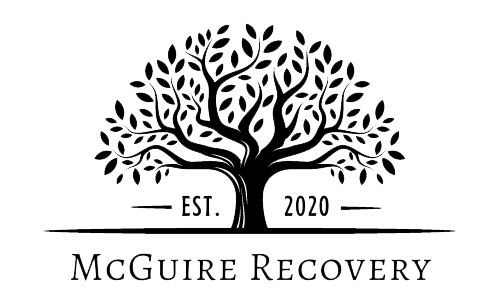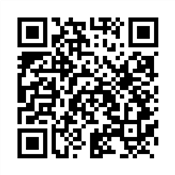Support Group for teens with substance abuse problems Jacksonville, FL
Ascend, group therapy for teens with addiction or substance abuse issues Jacksonville, FL
The Ascend program is one of the specialized programs which we offer here at McGuire Recovery. It involves the use of individualized, one-on-one sessions coupled with group therapy to help teens work through issues related to substance use, addiction, self-medication, and underlying mental health issues.
Here is what the Ascend program includes:
- 12 total weeks of attendance commitment
- One 2 hour group therapy session per week (two separate groups back to back)
- 1 Individual Therapy Session per week
- Family Sessions as needed but usually twice a month
- Drug testing 1 x per week (titration tests that show decreasing levels are available)
- Last but maybe most important is on-demand access to your therapist remotely. We offer Zoom, Facetime, or phone call support when your family is having disputes or crises outside of the office. This gives us context to confront behaviors and set boundaries in real life and in real time. Let us be the proverbial “bad guy” when decisions are being made so that you can get back to being the client’s family member.
Having worked in a “medical model” intensive outpatient program for several years I wanted to do something different. Drug rehab programs, whether inpatient or outpatient, are typically designed around treatment for adults, insurance, and state guidelines for what drug treatment should look like.
For example, IOP or Intensive Outpatient in Florida, according to DCF or Department of Children and Families, IOP must consist of three, 3-hour group sessions per week with one individual session and is usually done over six weeks. What I noticed working in an Outpatient program is the following:
1) That many families can't facilitate the time and transportation to comply with the program schedule even if it means the insurance will pay for it.
2) Clients can experience treatment fatigue because as they say “the mind can only absorb what the seat can endure”.
3) Six weeks may be right for the insurance company and the treatment program but it’s not enough for many patients especially teens and adolescents struggling with substance abuse.
It’s for those reasons that the Ascend program is self-pay only, with no insurance but we are affordable and we can make payment plans available. Not only that but if your plan has out-of-network benefits and the days have not been used by another provider, we can assist in submitting claims for reimbursement.
This enables us to extend the family/clients’ time in care and be more flexible. This group meets once per week every Friday from 6-8 and the individual therapy and family counseling appointments are scheduled at a time that works for everyone involved! *All groups are closed to the public and require enrollment.
The group therapy sessions involve small pools of our patients with similar issues being brought in for weekly conversational sessions. They can talk through their problems with peers and our therapists. We often times structure peer-led groups which allow those with more time in the program to develop leadership skills and contribute to the group they are in. This also allows them to see the progress that those around them are making, allowing them to be empowered to break free from substance use and become the best they can be.
Who is the Ascend Program for?
The Ascend program is designed for teens who primarily struggle with substance use issues. Some of our Ascend clients and alumni are considered dual diagnoses but the focus of the group is on substance use and addiction recovery.
Who is Ascend NOT for?
We do not accept adults 18 years or older in this group but we can absolutely work with them on an individual basis and if a higher level of care such as detox is needed we can make appropriate referrals and recommendations.
Ascend is not for teens with a primary diagnosis of mental health such as anxiety, depression, or personality disorder. Luckily, we offer one of the only programs in the greater Jacksonville area for adolescents with mental health disorders. We call this group Aspire.
What kind of topics does Ascend deal with?
What makes this group unique is that we divide the group session into two parts. The first hour we use to cover critical topics such as:
- Romantic relationships in early recovery (dating and breaking up, attracting healthy people, sex, laws around sex at their age etc)
- Secrets vs Lies (how to refine your honesty with self and others)
- Medical model (The neurobiology of substance use)
- Relapse prevention (How to safeguard against returning to addict behaviors)
- Life skills (obtaining employment, balancing a checking account)
- Social Media (mental health impacts of comparison, healthy regulation of time, real friends vs virtual ones, socio-economics impacts of online reputation.
- Pornography
These are heavy topics and really it’s a lot for ANY kid to sort through as they grow up in a world that is as dark and dysfunctional as it is beautiful and amazing. We try to provide structured education for the family as well because we sympathize with them. We are parents too. And it feels like by the time a child is old enough to enlighten about these topics, we just don’t have time or knowledge to impart all of this information even if the child will listen (and that’s a big if).
The following hour is peer-led group therapy. Every week we allow the group to decide on a topic for this hour. This gives them breathing room for the clients to show up more authentically with themselves and with us. It allows them to experience being a leader in the group and the value of helping the newcomer. We also regularly see clients call out peers regarding one another’s blind spots and denial. It’s not uncommon for peers to catch each other lying or making excuses and bring it to the surface. This can be even more powerful than hearing it from a parent, a therapist, or a priest.
What treatment modalities are employed at McGuire Recovery?
Our licensed therapists are certified in what is called NARM or Neuro-affective Relational Model which is an evidence-based treatment model for those suffering from Complex Trauma or C-PTSD. We have found that although some issues are the result of genetics or environment, most people abuse drugs and alcohol in response to some level of perceived abandonment, abuse, or neglect. And that treating someone for the ways they hurt inside will lead to less of a need for self-medication. In other words, untreated wounds are the reason for the maladaptive behavior.
Because this is our philosophy, the other modality is Eye Movement Desensitization and Reprocessing (EMDR). Originally called just EMD, this modality was discovered by accident in 1987 by Francene Shapiro when she realized that her disturbing thoughts were soothed when she went for long walks. The reason was that when the eyes move back and forth in a relaxed way, a person’s anxiety could be desensitized. This evolved to adding cognitive components and undergoing tests and trials as Francene trained and certified clinicians in her program.
A common misconception is that EMDR can rid a person of their trauma or PTSD but that’s not correct. When done properly, EMDR can relieve anxiety and reduce the effects of trauma.
Reach out confidentially

